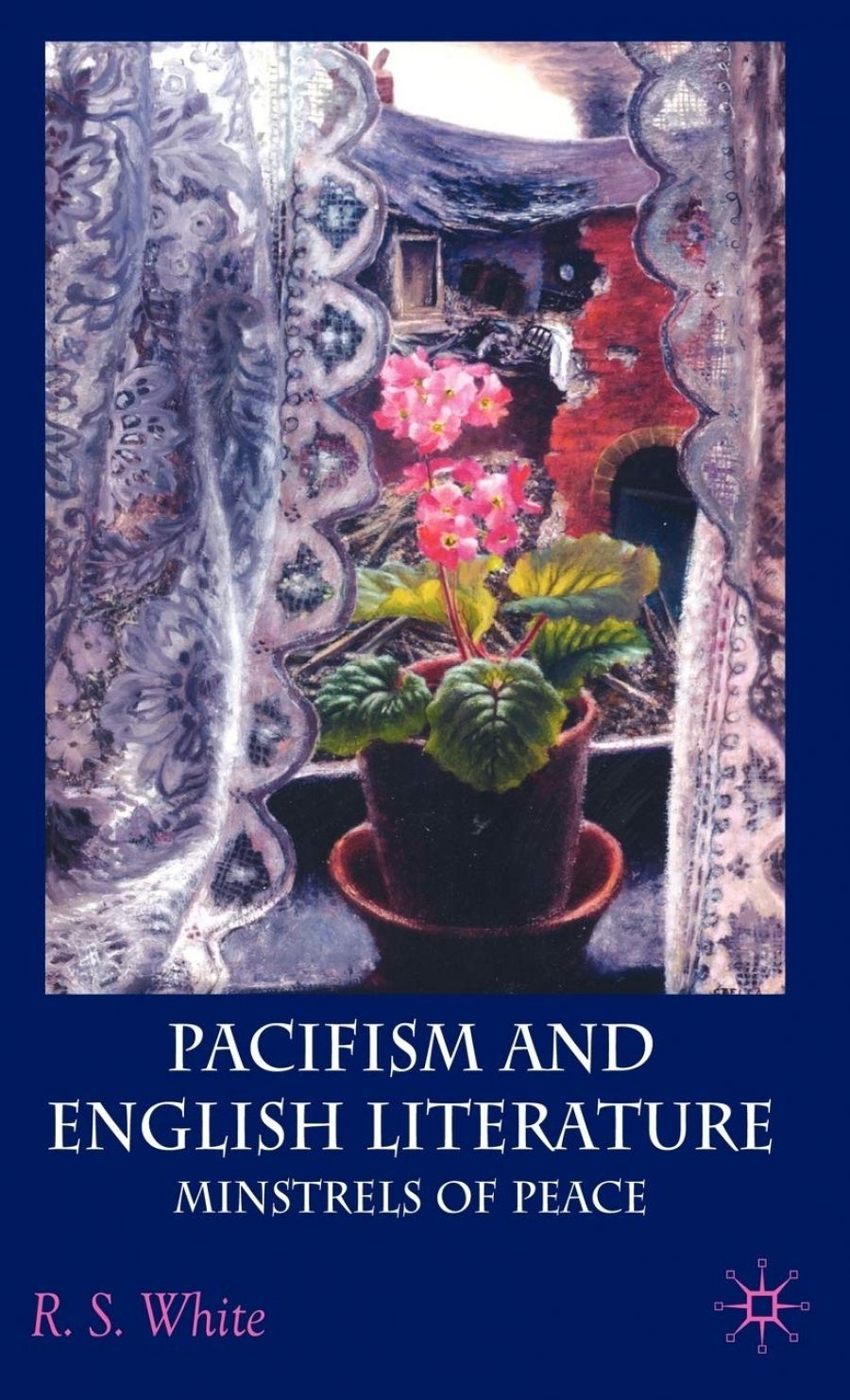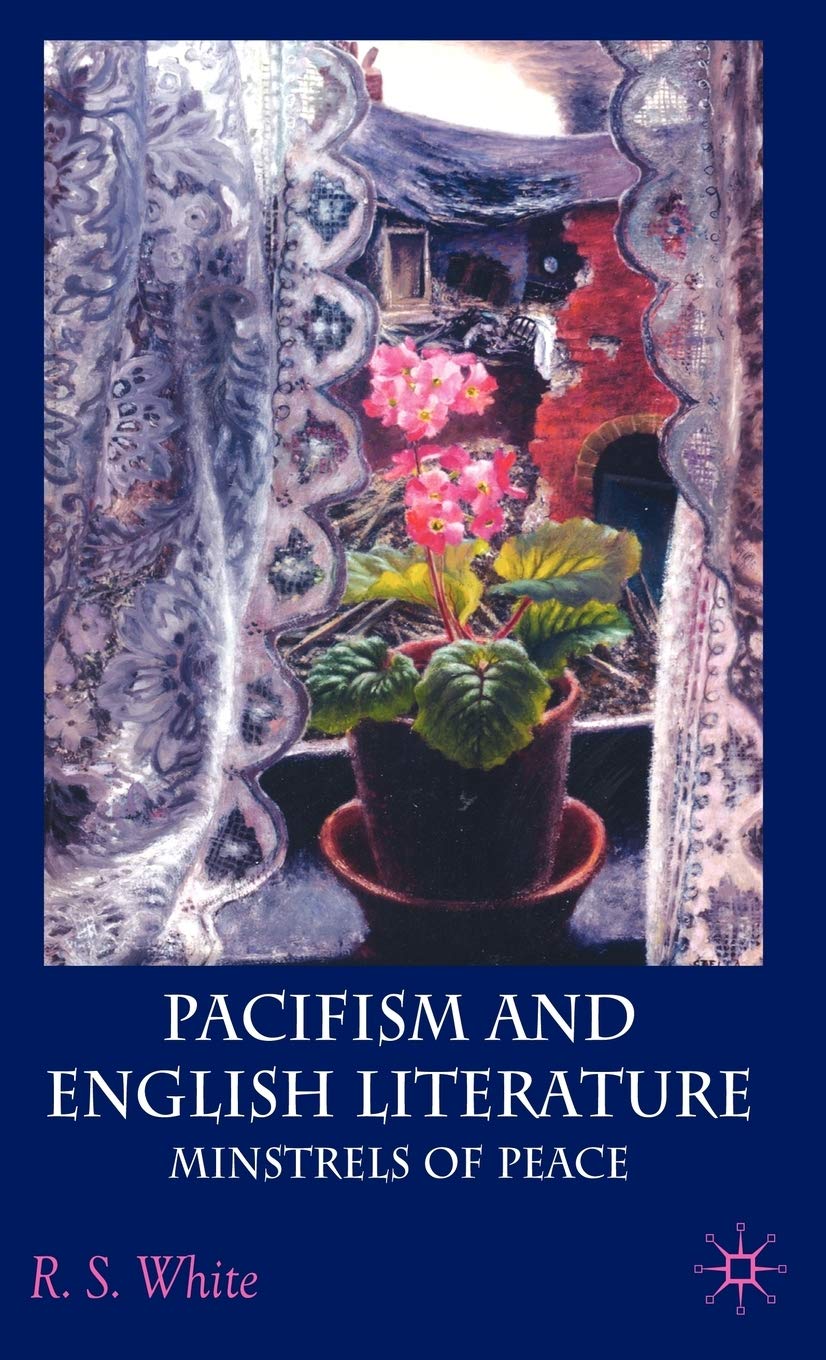
- Free Article: No
- Custom Article Title: Surfeit of minstrels
- Review Article: Yes
- Article Title: Surfeit of minstrels
- Online Only: No
- Custom Highlight Text:
It is tempting to become impatient, and to reach for a gun to resolve a problem, or a knife to cut a Gordian knot. As I write, the Burmese generals have been dithering and obfuscating rather than letting aid workers into their storm-ravaged country. The paranoid preservation of their honour and control bids fair to cause the death of tens of thousands of people. If the Burmese people cannot rise up to change this (and as poor, pacifist Buddhists, they are peculiarly ill equipped to overwhelm a shameless and violent régime), then we should surely invade, distribute the emergency aid, and replace the generals with responsible government. Some people only respond to violence, and surely justice demands this intervention.
- Book 1 Title: Pacifism and English Literature
- Book 1 Subtitle: Minstrels of peace
- Book 1 Biblio: Palgrave Macmillan, £50 hb, 299 pp
- Book 1 Cover Small (400 x 600):

- Book 1 Cover (800 x 1200):

However, there is nothing sure about the efficacy of reflexive violence, even against tyrants, for violence breeds violence far more surely than it breeds peace. R.S. White’s new book traces the attempts by writers – mostly poets and mostly in English – to take the other path, to ‘write’ peace as the ideal and natural state of human civilisation. To demolish the ideology of ‘just war’ propounded by many and underlying my tyrannicidal musings on the Burmese tragedy, he shows that justice is easy to claim (who does not go to battle with God on their side?), that the consequences of violence almost never fulfil the espoused purpose (remember Troy, remember Iraq, and most conflicts in between), and that even wars which seem defensible after the fact were not started for the reasons that now provide the victors with absolution (the Allies in World War II made no mention of Hitler’s racial policies when going to war).
Still, readers should not reach for White’s book for a persuasive argument that pacifism is the best policy. His conviction that peace is good is everywhere apparent, but he mounts no elaborate theoretical defence of pacifism. Rather, his purpose is to tell a story of what English literature looks like if pacifism is the literary historian’s central concern. This is no less valid than approaching literature with a thematic concern for race, gender, or class, and can clearly be very productive.
Many of the names and texts familiar to literary history appear, but with unfamiliar emphases. In Shakespeare, Troilus and Cressida and Coriolanus become central texts, their pervasive sceptical coldness convincingly portrayed as springing from the denial of peace in their respective worlds. Henry V loses all the militarist glamour of Olivier’s and Branagh’s interpretations to become, instead, the culmination of the history plays’ extended critique of war and its rationale. Paradise Lost becomes the work of a militantly pacifist Milton, who learns in defeat, after the Restoration, that the ready and easy way of force ensures nothing and provokes disaster, even deserved disaster, for an otherwise just cause. Because I read Milton as so militant a controversialist, this is not an intuitively appealing perception, but it does explain the sheer silliness of immortal angels, good and fallen, battling to no purpose in Book 6. Moreover, the more you think about it, the better it fits with the poem’s difficult central idea that only a free choice of obedience to truth and God’s will really matters – consent seduced by rhetoric or forced by arms is worthless.
Reading with an ear to peace means that different passages, poems, and poets become important from the received version of literary history. Shelley becomes the central Romantic, flanked by Byron, Blake and, most provocatively, Leigh Hunt. Many authors who have been defined as minor in traditional accounts, and quite a few who have slipped from sight entirely, are accorded respectful attention. This discovery of new territory is particularly like early Anglophone feminism. Women such as Christian Gray and Edith Sitwell, writing against war, get more attention than their better-known contemporaries, Wordsworth and Wilfred Owen. The end of the book belongs to bigger names such as Maya Angelou, Denise Levertov and Adrienne Rich, but even these are not the obvious candidates to represent turn of the millennium poetry in the testosterone-charged tradition that originates with Homer.
In the end, Pacifism and English Literature’s intellectual hospitality verges on being a flaw. Its willingness to welcome any minstrel of peace pushes it into comparative theology at the beginning and to prose and film near the end, yet it does not deliver a comprehensive or even fully representative literary history of pacifism in English poetry. For example, the pastoral tradition, which provides the dream-work of idyllically peaceful Arcadia, seems strangely absent from this account; I would expect to find a major seventeenth- and eighteenth-century contribution to pacifist verse there. More generally, White discusses so many writers that the extensiveness begins to look like an attempt at exhaustiveness. But exhaustive it cannot be, so the logic of inclusion is not apparent. If the book’s purpose is to show that there is a pacifist tradition, then deeper analysis of fewer texts would seem desirable, to nominate some classics of the tradition. Alternatively, sticking strictly to pacifism in verse, without the excurses into prose and film, would say something more concrete about a recognisable body of literature.
This is, nevertheless, a pioneering book and a conscientious work of conviction. It will not persuade a sceptic that humans really can live in peace, because it does not make any very systematic appeal to reason. That, after all, is a job for political theorists. Instead, it is like the literature it describes and praises. It elaborates the stubborn and idealistic suspension of disbelief which pacifist poetry requires: it dares to write as if peace is the only possible way.


Comments powered by CComment